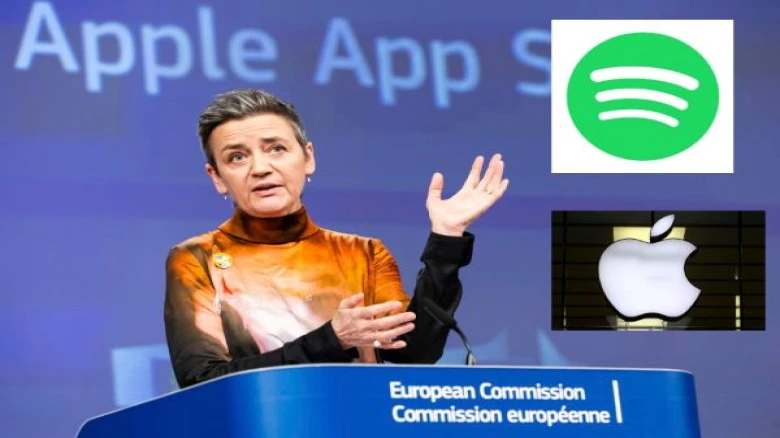Article

The EU's antitrust regulator highlighted that Apple's decade-long conduct may have caused iOS users to pay higher prices for music streaming subscriptions..
Digital Desk: The European Commission has slapped a substantial €1.8 billion fine on Apple for violating antitrust regulations related to the distribution of music streaming apps on its App Store within the European Economic Area (EEA).
The Commission found that Apple's dominant market position led to a misuse of power, primarily due to restrictions imposed on app developers. These limitations, known as 'anti-steering provisions,' prevented developers from informing iOS users about alternative and potentially cheaper music subscription services outside the App Store.
Commission Vice President Margrethe Vestager stated, "For a decade, Apple abused its dominant position in the market for the distribution of music streaming apps through the App Store." The EU has ordered Apple to remove the restrictive provisions and refrain from similar practices in the future.
The EU's antitrust regulator highlighted that Apple's decade-long conduct may have caused iOS users to pay higher prices for music streaming subscriptions, attributed to the significant commission fees imposed on developers and passed on to consumers.
"Apple's conduct, which lasted for almost ten years, may have led many iOS users to pay significantly higher prices for music streaming subscriptions because of the high commission fee imposed by Apple on developers and passed on to consumers," he said.
The investigation stemmed from Spotify's 2019 complaint, leading to a broader probe in 2021, which later focused on Apple's actions hindering apps from presenting information about rival music subscription options.
Apple criticized the decision, vowing to appeal, claiming the lack of credible evidence of consumer harm. The tech giant's tight control over the App Store in the EEA was identified as providing an advantageous position in dictating terms to developers, limiting information about alternative options, and potentially maintaining higher prices for its own services while impeding rivals.
As the legal battle unfolds, the Commission's decision marks a significant move in addressing concerns about anti-competitive practices in the tech industry.
Leave A Comment